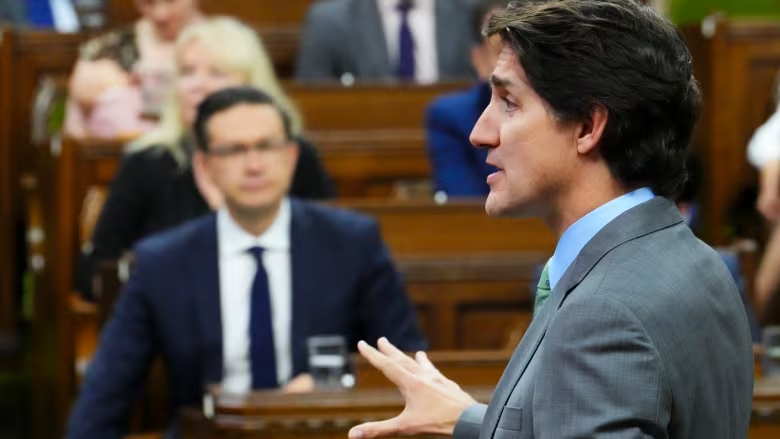Summary:
Prime Minister Justin Trudeau has instructed Canada’s intelligence agencies to find a way to brief Conservative leader Pierre Poilievre on allegations of foreign interference involving members of his own party. During a tense session of question period in the House of Commons, Trudeau stressed that Poilievre needs to take responsibility for protecting Canadians, including members of his caucus, even if he has not completed the process for a national security clearance.
The debate on foreign interference was reignited earlier this month when Trudeau told the public inquiry into foreign interference that he had seen intelligence implicating certain Conservative parliamentarians and party members in interference activities, or suggesting they were vulnerable to such threats. Trudeau’s statement on Wednesday confirmed his desire to share some of this intelligence with Poilievre, even hinting at possibly revealing “some names.”
However, Poilievre, the Opposition leader, remains firm in his stance against undergoing a security clearance. He has argued that doing so would legally bind him to secrecy laws, limiting his ability to challenge the government openly. In response, he called on Trudeau to release any names he has directly on the floor of the House of Commons.
Despite the pressure, Poilievre has faced criticism from members of the Liberal government, with government House leader Karina Gould questioning whether his refusal to undergo the clearance means he’s hiding something. Meanwhile, Poilievre’s spokesperson stated that his concerns aren’t about the security check itself but rather about being silenced by the government.
Security officials, including the director of the Canadian Security Intelligence Service (CSIS), Dan Rogers, told a parliamentary committee that it would be better if all party leaders were more informed about foreign interference threats. While a full security clearance would allow for a more detailed briefing, Rogers noted that CSIS is exploring alternative ways to share information when a leader refuses to go through the clearance process.
The issue continues to spark a political back-and-forth, with Trudeau emphasizing the need for Poilievre to take action to protect his party members and Poilievre pushing back on what he views as a strategy to silence opposition voices. Whether or not the intelligence services will find a middle ground in sharing sensitive information remains to be seen.

